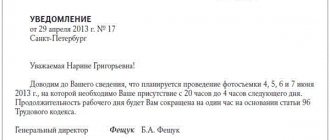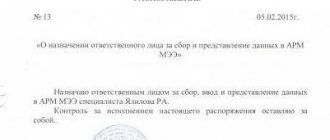Good afternoon, dear reader.
This article will discuss the period of bringing to administrative responsibility. This question is quite popular among drivers who want to know how long after the violation for violating traffic rules can be imposed
Often in practice the following situation occurs. A driver who has violated traffic rules is awaiting sentencing for several months, but the summons from the court never arrives. In this regard, the question arises about the maximum period for bringing to administrative responsibility. Let's take a closer look at it.
Limitation period for administrative liability
The maximum terms for bringing to administrative responsibility are listed in Part 1 of Article 4.5 of the Administrative Code. Part 1 itself is quite long, so only the part related to car drivers will be given below:
1. A decision in a case of an administrative offense cannot be made after two months (in a case of an administrative offense considered by a judge - after three months) from the date of commission of the administrative offense, for violation of the legislation of the Russian Federation ... on road safety (in part of the administrative offenses provided for in Articles 12.8, 12.24, 12.26, part 3 of Article 12.27, part 2 of Article 12.30 of this Code) ... after one year from the date of commission of the administrative offense ...
So, there are 3 options for the maximum period for issuing a decision:
- 2 months - for cases considered by officials (not judges). Within 2 months, for example, decisions on the imposition of administrative fines, considered by the traffic police, must be issued.
- 3 months - for cases considered by judges. This group includes, for example, penalties for violations that include deprivation of the right to drive vehicles.
- 1 year - for cases under articles 12.8, 12.24, 12.26, part 3 of article 12.27 and part 2 of article 12.30. This group includes penalties for driving while intoxicated, for causing minor or moderate harm to health as a result of an accident (including for violations committed by a passenger, pedestrian, etc.), for refusing a medical examination for intoxication, for the use of prohibited substances after a traffic accident.
Crimes without statute of limitations
According to Art. 78 of the Criminal Code of the Russian Federation, in some cases it is impossible to terminate a criminal case due to the statute of limitations due to their increased social danger.
Crimes against the peace and security of mankind
Following international legal norms, Russian courts do not apply statutes of limitations in relation to crimes committed against the peace and security of the population . These include:
- Terrorist attacks.
- Hostage taking.
- Unleashing, planning, waging, preparing an aggressive war.
- Theft of an aircraft, water vessel or rolling stock.
- Using methods of warfare.
- Ecocide and genocide.
Particularly serious crimes
When considering cases involving particularly serious crimes, judicial authorities have the right to determine whether to take into account the expiration of the statute of limitations.
This issue is resolved individually in each case.
If the judge considers that the application of the statute of limitations is possible, he will issue a guilty verdict and release the convicted person from punishment .
However, the law allows continued prosecution of particularly serious crimes, even if they were committed in the distant past.
The Criminal Code of the Russian Federation provides for a statute of limitations for criminal prosecution, after which the perpetrator cannot be brought to criminal liability. They range from 2 to 15 years , which depends on the severity of the act.
The statute of limitations does not apply to terrorist attacks and other crimes against the peace and security of the population. In addition, the judge, by his decision, can cancel the statute of limitations in relation to a particularly serious crime.
Also read: What is included in the concept of petty theft
Video: Exemption from serving a sentence due to the expiration of the statute of limitations
Suspension of the statute of limitations for prosecution
In practice, there are situations in which the period for holding someone accountable can be suspended. Part 5 of Article 4.5 of the Administrative Code:
5. If the petition of a person in respect of whom proceedings are being carried out on an administrative offense is granted, to consider the case at the place of residence of this person, the statute of limitations for bringing to administrative responsibility is suspended from the moment this petition is satisfied until the materials of the case are received by the judge, body, official to the person authorized to consider the case, at the place of residence of the person in respect of whom proceedings are being conducted for an administrative offense.
If the driver requests consideration of the case at his place of residence, the period of involvement is suspended. For example, if a driver has committed a traffic violation in a region that is located hundreds or thousands of kilometers from his place of residence, then he applies for the case to be considered in “his” region. In this case, the period of involvement is suspended until the case is submitted to the court at the driver’s place of residence.
For example, a driver living in Moscow committed a violation of the rules on September 1, 2020 in the Krasnodar Territory. At the scene of the violation, the driver requests that the case be sent to his place of residence, and the traffic police officer grants this request. Those. the period is suspended from September 1, 2020. The case comes to the Moscow court on January 1, 2020 (4 months later), but this does not mean that the deadline for prosecution has expired. 3 months have already passed since the violation, but the period was suspended, so the decision must be issued by the court within 3 months starting from January 1, 2020, i.e. the case can be considered until April 1, 2020.
Application of statute of limitations at different stages of criminal proceedings
It is possible that the statute of limitations ends at a certain stage of the criminal process . The law provides solutions for each case.
Also read: How to initiate a criminal case under the article of private prosecution of the Criminal Code of the Russian Federation
Pre-trial proceedings
If the statute of limitations for criminal prosecution expires during the preliminary investigation, the person may be released from liability .
However, the constitutional rights of all participants in legal proceedings must be ensured.
The main condition is the consent of the accused (suspect) to terminate the criminal case.
This is important, since the circumstance contained in clause 3, part 1, art. 24 of the Code of Criminal Procedure of the Russian Federation is non-rehabilitating, that is, the person is not recognized as innocent. If he refuses to terminate the criminal prosecution, a guilty verdict is issued with release from punishment.
Preliminary hearing
If the preliminary investigation has been completed, but the statute of limitations has expired after the case has been brought to court, termination of criminal prosecution is also possible. However, this requires a foundation.
The accused must prepare a motion to dismiss the criminal case due to the expiration of the statute of limitations. Then, in accordance with clause 3, part 2, art. 229 of the Code of Criminal Procedure of the Russian Federation, the court must conduct a preliminary hearing and make a decision to dismiss the case.
Trial
In judicial practice, there are 2 options for decisions on the application of statutes of limitations in cases where they end at the trial stage:
- Termination of criminal prosecution without continuing the hearing (if the consent of the accused is obtained).
- Continuation of proceedings as usual (if the accused declares his non-involvement in the crime). In such situations, judges sometimes order release from criminal liability.
Spelling of the word "after"
The derivative preposition retained the spelling of the final letter “and”, as in the case form of the same-root noun.
Let's see how to correctly write this word in the following combinations:
Grozny is a test word for the letter “d” (unpronounceable consonant)
- upon expiration of the term;
- after the expiration of time;
- after a month;
- after a year;
- upon expiration of the contract.
ConclusionThe word “after” (the period) is correctly written with the letter “and” at the end as a derived preposition from the prepositional case form of the noun.
Let’s remember this spelling like this: the previous letter “and” in the word “after expiration” specifies the spelling of the same final letter.
Similarly, according to the spelling rule, denominal prepositions derived from nouns in the form of the prepositional case are written with the final letter “and”:
- graduation - upon graduation from school;
- completion - upon completion of the project;
- arrival - upon arrival of the train.
Calculation and completion of procedural deadlines
Standard calculation of the PC begins on the day following the date of the event as a result of which actions are taken: rulings are made, cases are accepted for proceedings, and proceedings are scheduled.
There are other nuances that are important for calculations:
- The flow of PS is continuous. It includes weekends, working days, and holidays.
- The time limits set by the court are determined taking into account the principle of reasonableness.
- The PS counted in days does not include weekends and holidays.
Let's look at several different examples of the beginning and end of deadlines according to the Resolution of the Plenum of the Supreme Arbitration Court of the Russian Federation dated December 25, 2013.
No. 1. The period is calculated in years, the date of the event is December 25, the beginning of calculation is December 26. The closing date is December 25 of the following year.
No. 2. The period is 1 month, the event date remains the same. The end is January 25 of the following year, the countdown is from December 26 of the previous year.
No. 3. The period is 10 days, the event is December 25, 2020. Counting from December 26, ending on January 16, 2020 due to the New Year holidays.
Important! These rules also apply in the arbitration process.
What you should know about the end of PS:
- when calculated in years, the end occurs on the corresponding date of the last year;
- if the end occurs in a month where the required date is missing, the end is made on the last date of the month. (for example, if the end date is February 29, with 28 days, the last date is February 28);
- The action for which the PS is established must be carried out before 24 hours of the specified date, i.e. until the next day.
If the action must be carried out in a courthouse or another institution operating according to a schedule, the end is carried out at the end of the last hour of the institution’s work.
Break and adjournment of meetings
A break may be declared by the court within one day or for a period of up to 5 days. In the latter case, a ruling is issued indicating a new hearing date. Previously, courts used the principle of continuity, when during breaks they could not consider other cases.
Now it has been cancelled, and judges can resolve other proceedings (Article 157 of the Code of Civil Procedure of the Russian Federation). After the break, the examination begins from the place where it was finished. The same circle of people participates in the procedure.
A break is declared at the request of the parties or on the initiative of the court, and is more often used in civil proceedings.
Adjournment is a form of ending a meeting by adjourning to another date.
The basis may be:
- failure of a participant in the dispute to appear if consideration is impossible;
- filing a counterclaim by the defendant;
- the need to obtain additional evidence;
- technical problems with audio recording and video surveillance systems in the meeting room;
- the need to call other witnesses, third parties;
- filing by the plaintiff or defendant of a request for postponement in connection with an appeal to a mediator, judicial conciliator (the hearing is postponed for up to two months);
- receipt of an application from the authorized body about the illegal movement of a child, if a dispute affecting interests and rights is being considered (delay up to 30 days);
- the need for an examination.
Simplified proceedings in civil proceedings
The maximum period for adjournment is 2 months, determined by the court on a specific case individually.
During a divorce, at the request of the defendant, a conciliation period of up to three months is assigned. During this time, production is suspended and resumed upon expiration of the period specified in the determination.
Legal advice: if you do not want to get a divorce, the easiest way to delay procedural deadlines is to file a petition to appoint reconciliation. You will be given up to three months to improve your relationship with your spouse.









